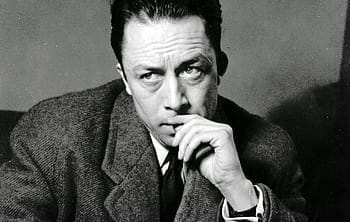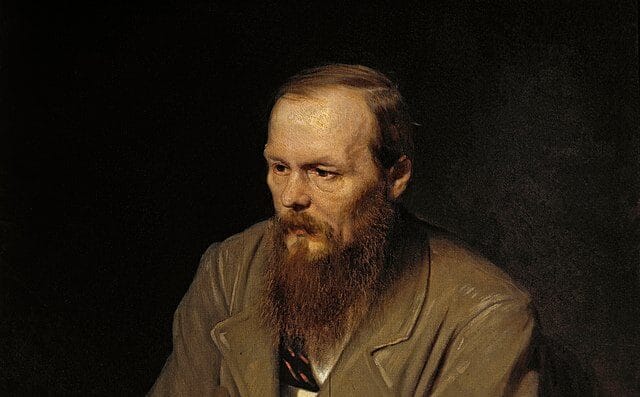21 Famous and Notable Quotes by Virginia Woolf: Feminism, Love, and Life
On Feminism and Gender Equality
“A woman must have money and a room of her own if she is to write fiction.” A Room of One’s Own (1929)
Virginia underscores the importance of financial independence and personal space for women to create freely. This statement is not just about material needs but about the freedom to live and write on one’s own terms, away from societal constraints.
“For most of history, Anonymous was a woman.” A Room of One’s Own (1929)
This powerful line draws attention to the historical silencing of women. Woolf points out how women’s voices were often hidden or ignored, calling for a recognition of their contributions to art and culture.
“I am not interested in how women feel; I am interested in how women think.” A Room of One’s Own (1929)
Here, she challenges the assumption that women’s emotions are their most important trait. Virginia emphasizes the need to focus on women’s intellectual capacities, advocating for women’s freedom to think and express themselves fully.
“The history of men’s opposition to women’s emancipation is more interesting perhaps than the story of that emancipation itself.” A Room of One’s Own (1929)
Woolf draws attention to the societal resistance to women’s rights, encouraging us to explore not just the progress women have made but also the forces that have attempted to hold them back.
“I will not be ‘good’ if I have to be weak and meek.” A Room of One’s Own (1929)
She rejects the notion that women must be meek to be considered virtuous. Instead, Virginia insists on the strength that comes with assertiveness and independence, advocating for a broader definition of womanhood.
“If you have fallen in love with a woman, it is very difficult to believe that men can be the rulers of the earth.” A Room of One’s Own (1929)
Woolf critiques patriarchal structures, suggesting that love between women challenges the traditional power dynamics and offers a glimpse into a more equal world.
“We are all at different stages of a woman’s struggle. The essential thing is to keep moving.” A Room of One’s Own (1929)
Virginia encourages perseverance in the ongoing fight for women’s equality. She acknowledges the challenges but emphasizes that progress comes from continuous effort, no matter where we are in the journey.
On Love and Relationships

“Love, in its essence, is not about possession. It is about mutual growth and understanding.” The Waves (1931)
This quote speaks to the true nature of love: not about control or ownership, but about shared growth. Woolf highlights the idea that love should be a partnership that nurtures both individuals’ development.
“The heart is a lonely hunter, and love, no matter how much it is felt, is always silent.” To the Lighthouse (1927)
This line reflects the solitude inherent in love, suggesting that even though love is deeply felt, it remains something personal and often unspoken. Woolf captures the complexity of emotions that accompany it.
“I will love you as the woman loves the man she has always been.” The Waves (1931)
Here, Woolf explores the idea that love is deeply connected to our own identities. It’s about accepting and loving the person we have become and the person we choose to share our lives with.
“Love is an ungovernable force. It cannot be tamed or predicted, only felt.” The Waves (1931)
Woolf presents love as a wild, unpredictable force, something that can’t be controlled or understood logically, only experienced. It’s a reminder of love’s power and mystery, beyond our comprehension.
“To love is to feel the heartbeat of the universe in every breath you take.” The Waves (1931)
This quote reveals the depth and transcendence of love, likening it to a spiritual experience. It’s as if love connects us to the very pulse of life, making every moment more meaningful.
“There is no remedy for love, but to love more.” The Years (1937)
Virginia expresses the idea that the only solution to the complexities of love is to continue loving. When love causes pain, the response is not avoidance, but more love, highlighting its all-consuming nature.
“True love, unlike romantic fantasy, requires constant patience and effort.” Mrs. Dalloway (1925)
Here, Woolf dispels the myth of effortless love. She suggests that real love requires patience, work, and understanding—far beyond the fairy tale notions often portrayed in popular culture.
On Living Authentically

“Life is a struggle, but we must find joy in the fight.” A Room of One’s Own (1929)
This quote speaks to the challenges of life and how we should embrace them. It’s a call to find meaning and even joy in the struggles we face, turning adversity into something transformative.
“The only thing that matters in life is love and the relationships we create with others.” The Waves (1931)
For Virginia, life’s true meaning comes not from material success, but from the connections we form with others. It’s the bonds we share that give our lives depth and purpose.
“There is no greater agony than bearing an untold story inside you.” The Heart of the Matter (1941)
Woolf speaks to the power of self-expression. The act of holding back one’s thoughts and emotions can cause immense pain, reinforcing the need for creative and personal outlets to share our truths.
“We are all broken. That’s how the light gets in.” The Diary of Virginia Woolf (1939)
This quote celebrates imperfection and vulnerability. It suggests that our flaws and struggles allow for growth, as it is through our weaknesses that we invite healing and enlightenment.
“I am not afraid of life’s storms. I have learned to dance in the rain.” The Waves (1931)
Virginia captures the essence of resilience here. She teaches us that life’s hardships are inevitable, but it’s how we respond to them that defines us—choosing to embrace the storms rather than fear them.
“It is not the things we experience, but how we experience them that shapes our lives.” A Room of One’s Own (1929)
Woolf shifts focus from external events to internal perception. She reminds us that our experiences only have meaning based on how we interpret and engage with them.
“To live is the rarest thing in the world. Most people exist, that is all.” The Soul of Man Under Socialism (1909)
This quote urges us to embrace life fully, to live authentically and purposefully, rather than simply going through the motions. It’s a call to engage with life on a deeper, more meaningful level.
Virginia Woolf’s quotes are timeless, offering profound insights into feminism, love, and life. Her reflections encourage self-exploration, challenge societal norms, and inspire readers to live with authenticity and purpose. Whether discussing the importance of women’s voices or the transformative power of love, Woolf’s words continue to resonate, urging us to think, feel, and live deeply.



